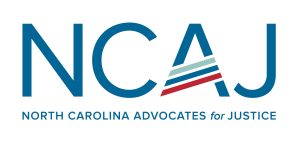Award-Winning North Carolina Workers’ Compensation Lawyers Fighting For you
North Carolina Board Certified Workers’ Compensation Specialist
Are you wondering if you have a NC workers’ compensation case? Are you worried that you are not getting the medical treatment or disability payments you deserve? Do you have questions about whether you should accept an injury “rating” or settle or “clincher” your NC workers’ comp case? If so you have come to the right place. NC Workers’ Comp Attorney Kevin Bunn is here to help.
If you are injured on-the-job in North Carolina you have important rights under Workers’ Compensation law in North Carolina. But there are critical time limitations on your workers’ comp case in NC. It is up to you to make sure these rights do not slip away. Do not rely on your employer or their workers’ compensation insurance company to tell you what is best for you.
NC Workers’ Comp Lawyer Kevin Bunn has received top ratings from clients, judges and lawyers for his knowledge and professionalism, including the prestigious AV rating from Martindale-Hubbell. He is among the elite attorneys in North Carolina to have been certified as an expert in NC workers’ compensation law by the North Carolina State Bar. Kevin has been designated as one of the Best Lawyers in America for Workers’ Compensation Law – Claimants. He is also the co-editor of North Carolina Workers’ Compensation Law: a Practical Guide to Success at Every Stage of a Claim.
For over 20 years Kevin has worked to help injured NC workers. Let him help you. Please fill out the contact form on this site or call today for your free, no-risk consultation with Board Certified NC Workers’ Comp Attorney Kevin Bunn. There is no upfront payment required if we take your case.
Frequently Asked NC Workers’ Compensation Questions
Do You Need a Lawyer?
Should you talk to a workers’ compensation attorney about your case? How can an attorney help you with your claim? What is a Board-Certified Expert in North Carolina Workers’ Compensation Law?
Is Your Injury Covered?
How to File A Claim
Medical Treatment
Disability Benefits
What is An Injury Rating?
Occupational Diseases
NC Death Claims and Benefits
North Carolina Industrial Commission
Should You Settle Your Case?
Latest from the NC Workers’ Compensation Blog
Understanding Workers’ Compensation Benefits in North Carolina
📋 What This Article Covers North Carolina's workers' compensation system provides injured employees with medical coverage and wage replacement benefits. This guide covers the four main types of benefits available: (1) Medical Benefits - covering all necessary...
2026 “Lawyer of the Year” in Workers’ Compensation Law
We are thrilled to announce that Kevin Bunn has been recognized by his peers as the 2026 "Lawyer of the Year" in Workers' Compensation Law - Claimants in Raleigh by The Best Lawyers in America®. This prestigious honor reflects Kevin's unwavering dedication to...
Who is covered by NC workers’ compensation?
Understanding workers' compensation coverage in North Carolina can be complex, but knowing whether you're protected is crucial if you're injured on the job. The North Carolina Workers' Compensation Act covers most employees, but there are important details and...
NC Workers’ Compensation Settlement Chart
If you've been injured at work in North Carolina, you've likely heard about a "settlement chart" that supposedly tells you exactly how much your workers' compensation case is worth. However, the reality is more complex than many injured workers realize. The Truth...
NC Workers’ Compensation Laws for Truck Drivers
North Carolina Workers' Compensation Laws for Truck Drivers: A Complete GuideDriving a truck can be a dangerous job. Many NC truck drivers get injured on the job in motor vehicle accidents, tarping loads, or in other workplace accidents. If you're a truck driver who...
When Will Workers’ Comp Offer a Settlement?
Understanding the Workers' Compensation Settlement Process in North Carolina If you've suffered a work-related injury in North Carolina, you may be wondering when and if the workers' compensation insurance company will offer a settlement. Understanding this process is...
Free Case Evaluation
Call us toll free, 800-665-8945 or write to us:









